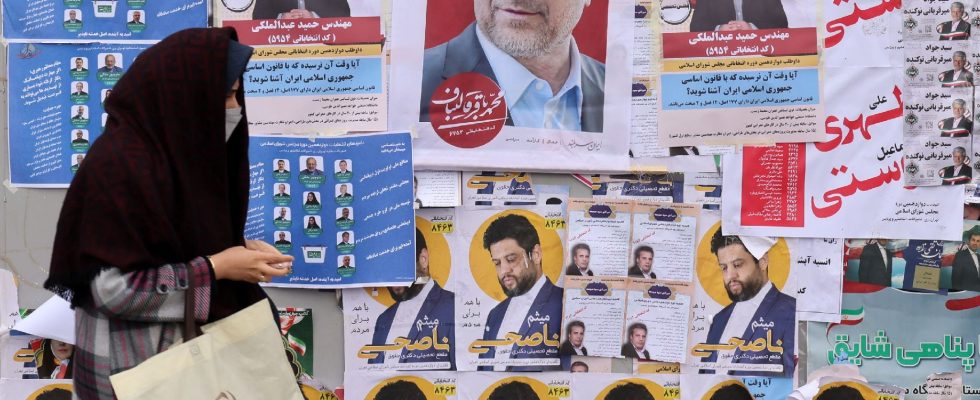Two days after the election in Iran, the counting of ballot papers continued this Sunday, March 3, pending the proclamation of the final results by the Ministry of the Interior. But official media have already estimated that the participation rate was around 41%. The double ballot intended to elect the 290 deputies and the 88 members of the Assembly of Experts, responsible for appointing the supreme guide, therefore mobilized some 25 million of the 61 million voters, in a country of 85 million inhabitants. No independent estimates were available.
Participation was the main issue in these elections, considered a test for power: they are the first since the vast protest movement that shook the country following the death, in September 2022, of the young Mahsa Amini, arrested for non-compliance with the country’s strict dress code. The figures show a marked downward trend in participation, which amounted to 42.57% in the previous legislative elections of 2020, organized at the start of the Covid crisis. It was already at its lowest level since the proclamation of the Islamic Republic in 1979.
The authorities, however, welcomed the level of participation, which demonstrated that “the plan to boycott the elections fomented by enemies from abroad” had not worked. It is “a new historic failure inflicted on Iran’s enemies after the riots” of 2022, President Ebrahim Raïssi ruled on Saturday.
“Wake-up call”
The press was divided on Sunday on the lessons of the election. The daily reformist Ham Mihan considered that it represented “a fall for power”, regretting that “the soul of the elections had been lost”. For the pro-government newspaper in English Iranthe vote is “a wake-up call” for the authorities, who must “listen to the voices of the 36 million people who did not vote for different reasons”.
The main coalition of reform parties, the Reform Front, announced its refusal to participate in these “meaningless elections” after the disqualification of many of its candidates. Symbol of this distrust, the leader of this camp, former president Mohammad Khatami, who led the country between 1997 and 2005, did not vote for the first time. Before the vote, he regretted that Iran was “very far from free and competitive elections”, without calling for a boycott, unlike opponents in exile.
On the other hand, former President Hassan Rouhani (2013-2021) went to a polling station despite the controversial disqualification of his candidacy for the Assembly of Experts, responsible for appointing the supreme guide. The main consequence of this strong abstention is that the next Parliament will be even more “in the hands of radical conservatives” who “took advantage of the opportunity created by the reduced participation”, noted the reformist daily Shargh. The number of invalid and blank ballots would also be higher than in previous elections, according to certain media.
Thus, in Tehran, where participation was only around 25% according to certain media, 12 deputies elected on Friday all belong to the ultraconservative current, which defends the government of President Ebrahim Raïssi. More moderate candidates were defeated or will face a runoff in April or May, which will be needed to fill the remaining seats in the capital.
The majority, made up of conservatives and ultra-conservatives, is in favor of a strict line on the values of the Islamic Republic and firmness towards Western countries, in particular the United States and Israel, which do not maintain no diplomatic relations with Iran.
